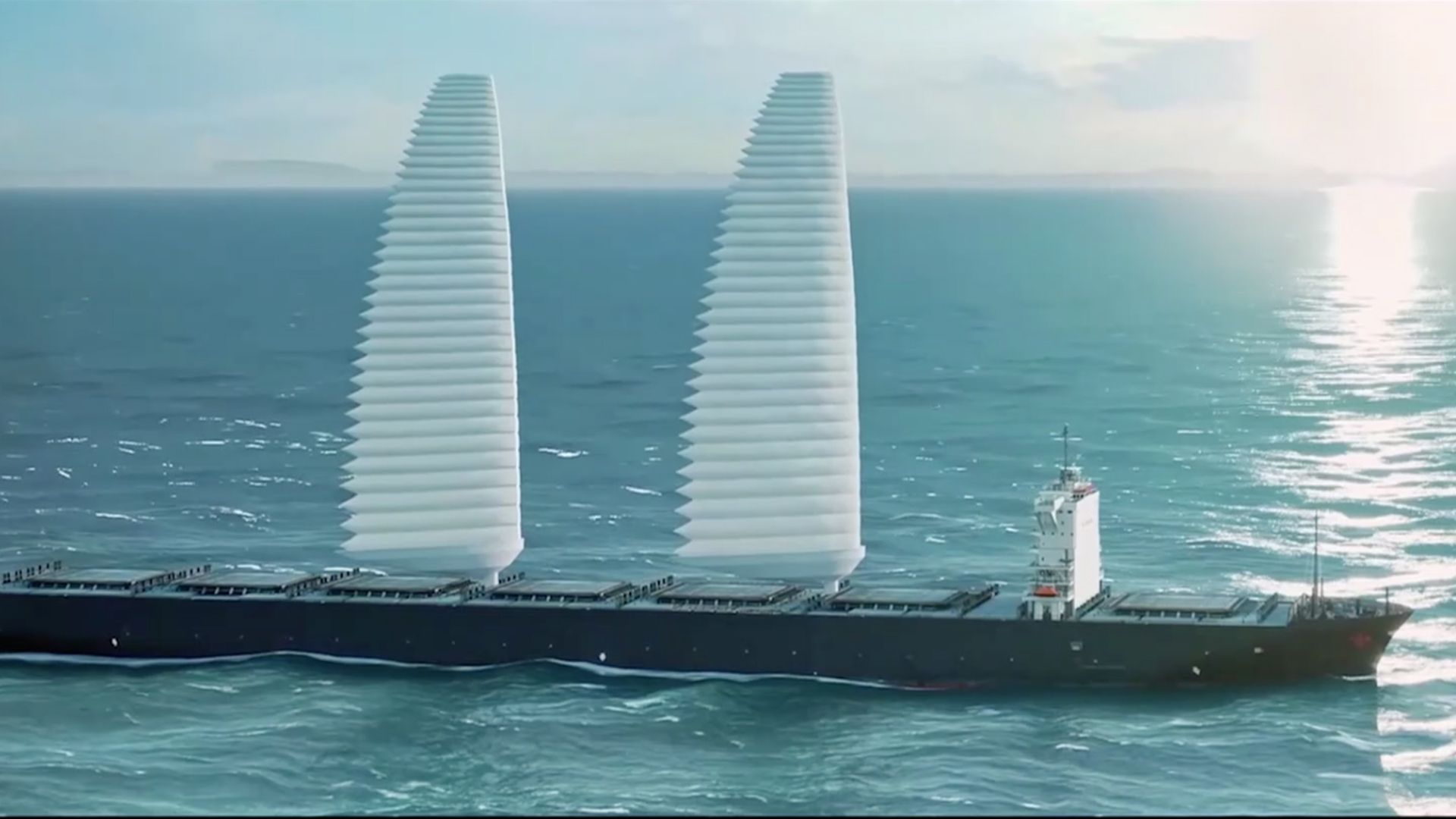Jun 18, 2021 - Energy & Climate
Inflatable sails to give cargo ships a greener push
Add Axios as your preferred source to
see more of our stories on Google.

Michelin's Wing Sail Mobility (WISAMO) system can reduce a cargo ship's fuel consumption by up to 20 percent. Photo: Courtesy of Michelin.
